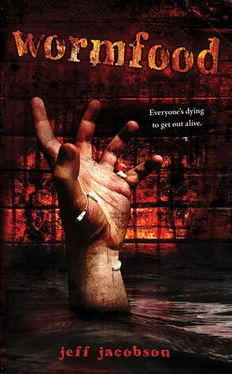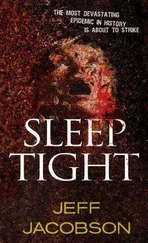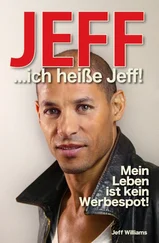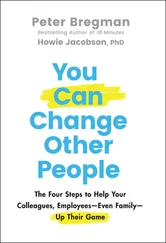“Grandma, I’m just gonna go to work. Earn some money,” I said quietly, moving down the steps.
“Thought we talked about this last night,” Grandma said.
Junior shook his head. “No hurry here. Take your time. Shit.” He banged his hand flat against the cab’s roof. “Let’s go! We got work to do.”
Grandma casually brought her shotgun around until the barrels were aimed at the truck. I knew she was just looking for an excuse, itching to send nearly four hundred tiny balls of steel shot through Junior’s head at over thirteen hundred feet per second, cracking open his skulllike a walnut under a hammer, squirting blood, bones, and brains out into the damp air, drenching the weeds beyond the driveway with the remains of his head.
And I knew Grandma well enough to know that she might not need an excuse.
So I did the unthinkable. I stepped in front of Grandma’s shotgun, moving sideways toward the truck. Something sour and foul sagged and cracked inside of me. It felt like I had just broken something sacred. “It’s gonna be okay, Grandma. Really. I’m just gonna go make some money. I’ll see you tonight, okay?”
Grandma didn’t answer. At least she kept moving the shotgun so that the barrels were never aimed directly at me. Her expression didn’t change. I was sure I could see the pain of betrayal behind her glasses. I wanted to say something that would make everything better, anything to repair the crumbling canyon between us.
But nothing came out of my mouth. As Bert opened the passenger door, I finally turned away and stepped onto the running board. Grandma’s voice stopped me. “You be careful out there.”
I nodded back at her and climbed into the truck. Bert twisted sideways and pulled me inside. The cab smelled like an unholy, fermenting mixture of cheap whiskey, cow shit, and blood. I landed in the middle of the wide bench seat. Bert slammed the door.
Junior nodded at Grandma over the hood and said, “By the way, Ma said to say hello. Said she hasn’t forgotten, understand? Said to tell you she’s keeping them forty-four teeth safe and sound.”
Grandma didn’t say anything. She didn’t move. Nothing.
Junior dropped behind the wheel and jerked the long gearshift into reverse. I didn’t know what the hell he was talking about. As we rolled backward out of the yard, I watched Grandma through the bug-spattered windshield, a stout figure silhouetted against the faded white trailer, standing perfectly still next to her garden. I raised my hand and waved once.
Grandma didn’t wave back.
CHAPTER 2
The truck hit the narrow blacktop strip of Road E backward hard enough that my head cracked into the compound bow hanging in the back of the cab. Junior wrenched the huge steering wheel around, stomped on the brakes, and shifted savagely into first gear, slamming the gearshift into my thigh.
I readjusted my backpack on my lap and tried to slide over a little on the tattered seat, but not too much. I didn’t want to get any closer to Bert; I was afraid of catching fleas, or maybe even something worse. I just tried to hold my breath and focus on the dancing hula girl stuck to the dashboard. Actually, the figure wasn’t dancing so much as shaking spastically in the vibrating, shivering truck.
We headed west, passing waist-high cornfields and grazing land so green it looked nearly black under the dark, oppressive sky. The town of Whitewood lay to the south at the mouth of a little sliver of a nearly forgotten valley, shaped like a crooked finger that curved up into the high mountain desolation in the northeastern corner of California’s vast Sacramento Valley. The town existed in a gray zone, in the hazy border between the long, agriculturally rich Sacramento Valley and theunforgiving volcanic mountains. Mount Shasta loomed over the town to the northwest, and Mount Lassen waited quietly behind the hills to the southeast.
The business district ran for about three blocks, lined with empty, boarded-up buildings, ending in the town’s only stoplight. It hung suspended from a cable stretched across the street, and high winds killed the light every few weeks. A couple of gas stations, a hardware store, and a poorly stocked grocery store were scattered along the eastern edge of town as if pulled like magnets to the rush of the freeway. The largest structure in town would probably be the high school football bleachers.
Junior casually scratched his balls with his left hand and yawned. He always wore jeans that were two sizes too small. I guess he figured he was showing off his package, but every once in a while he’d drop down on a barstool at Fat Ernst’s and I’d hear that quick rip, like a gasp of relief from the jeans. Split jeans never slowed Junior down much; he always kept an extra pair in the truck.
His finger stabbed at the filthy windshield, pointing at the road ahead. “You see what I see?” he asked in a happy, lilting voice.
A jackrabbit hopped tentatively out of the weeds under a barbed wire fence and out onto the asphalt about thirty yards up the road, near the intersection where Road E crossed over Highway 200. The rabbit’s ears twitched once; then it froze.
“Go get it,” Bert said in a rush, under his breath. Like cats stalking a bug, neither brother moved a muscle for several seconds. Junior flicked the headlights. Once. Twice. He eased off the gas and we coasted quietly for a moment. He cautiously shifted down, still coasting. Junior flicked the headlights one more time, then popped the clutch and the truck shot forward as if stung by a wasp. The rabbit never moved.
A quiet thump.
The brakes squealed and I damn near lost a few teeth kissing the hula girl.
“Goddamn!” Junior shouted. “You see that? Goddamn!” Thetruck slid to a stop at the edge of Highway 200 in a cloud of exhaust and melted rubber.
Junior pulled a clipboard wrapped in a plastic grocery bag from under the seat. He made a neat little check mark on the paper. Blurry snake tattoos slithered up his arms. The clipboard was carefully placed back into the bag and returned to its spot under the seat. “And there’s our fucking quota for the week.”
One of the Sawyer brothers’ jobs was driving around, picking up roadkill for the county. They’d collect anything dead off the highways. Rabbits, possums, skunks, squirrels, raccoons, cats, dogs; anything, as long as it was dead or dying, always trying to reach the quota early in the week, in order to take advantage of more free time. That way, they could work for Fat Ernst earning money for odd jobs here and there, like tearing down the barn, unclogging sump pumps, or digging out septic tanks.
In addition, Junior and Bert ran the only hide and tallow business in Whitewood. They’d haul dead livestock back to their place, way back up Road E, past Grandma’s trailer, past where the pavement ended up in the hills. Usually they would collect dead cattle, but sometimes sheep and hogs as well, boiling the carcasses down into glue or dog food. The Sawyer family used to own a legitimate slaughterhouse and sold meat all over the place, but it didn’t surprise anybody when they got shut down one day by the health inspector.
Later, the health inspector disappeared.
Stories and rumors and hushed whispers floated through the bars and grocery store about it. Most of these stories were about Pearl Sawyer, Bert and Junior’s mother. She’d been around for as long as anyone could remember, living in that same house. I had never seen her. Supposedly, she never left the house anymore. Not since her own accident with the lawnmower.
Junior kicked his door open and jumped to the pavement. Bert did the same. I climbed out too, if for nothing else than to get some freshair. Thunder crackled far off to the west, far enough that I thought it might be a while before the full force of the storm reached us, but the clouds above were slipping across the sky and tumbling over each other at a frightening speed. The air smelled brilliantly clean, almost sweet.
Читать дальше












